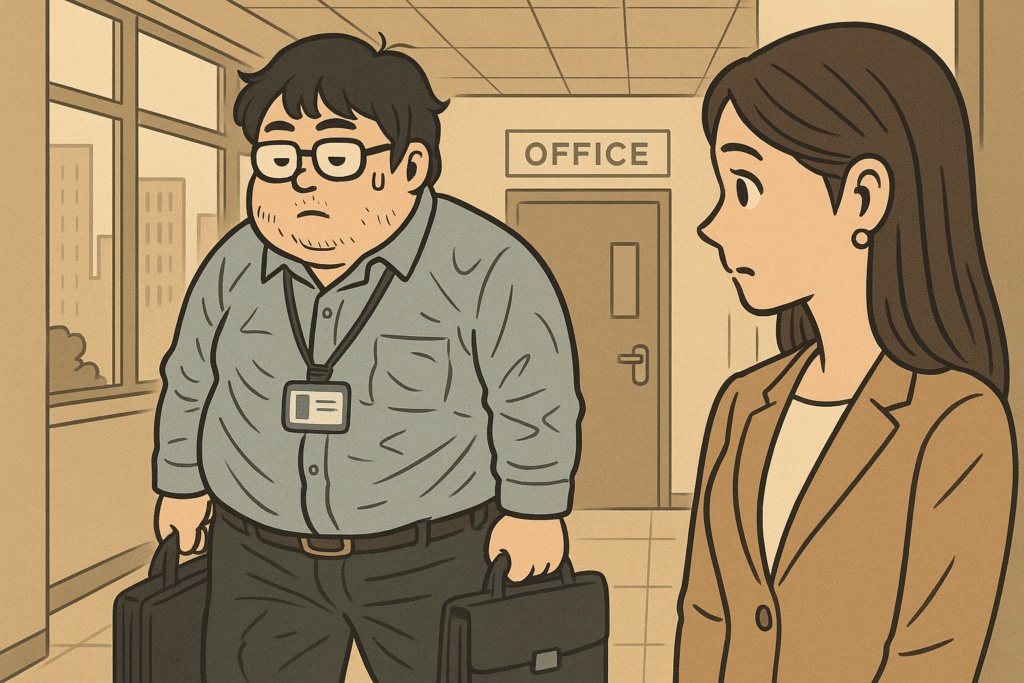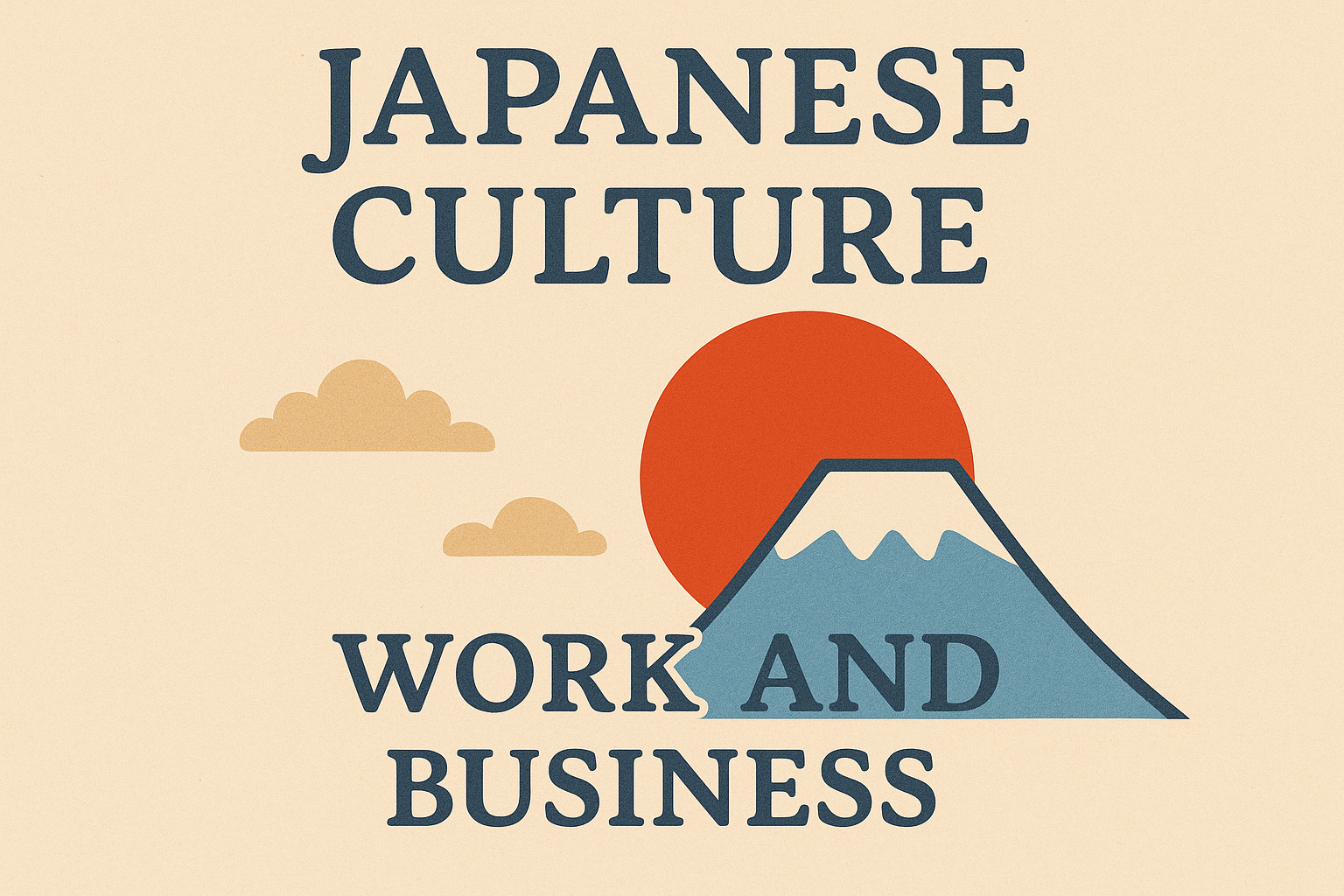In Japan, a neat, wrinkle-free shirt is more than just office attire — it reflects respect, discipline, and deeply rooted cultural values. For visitors and professionals alike, understanding this subtle but important aspect of appearance can help navigate Japanese workplaces smoothly and confidently. (Related article in Japanese)
Why Do Wrinkles Matter So Much in Japan?
First impressions are crucial everywhere, but in Japan, they carry an extra layer of cultural meaning. In Japanese society, appearance is seen as an outward expression of your respect for others. A wrinkle-free shirt signals attention to detail, self-discipline, and courtesy toward colleagues, clients, and even strangers.
This meticulous approach to presentation has historical roots. In the era of kimono, every fold, sash, and crease was intentional and precise, reflecting harmony and respect. When Western suits became standard business attire, this cultural sensibility seamlessly transferred: a businessperson’s neatness now extends to every aspect of their modern ensemble.
To many outsiders, a few wrinkles may seem trivial. But in Japan’s group-oriented society, looking polished contributes to wa — the social harmony that ensures smooth interactions and shows consideration for others.

How to Dress Appropriately as a Foreigner
If you’re working in Japan or visiting for business, aligning your appearance with local expectations is key to making a good impression. Here are some essentials:
- Prioritize neatness over fashion: Japan favors a “neat but simple” aesthetic. Loud colors or overly casual styles are often frowned upon.
- Shirt matters most: A crisp, clean shirt — preferably white or light blue — is foundational. Wrinkle-free or “easy care” shirts help maintain the standard effortlessly.
- Ties and suits: Conservative ties and dark suits are still the norm in most industries, especially for formal meetings.
- Shoes and accessories: Ensure shoes are clean and polished. Minimal accessories are best.
These guidelines may seem rigid, but they reflect respect for both the occasion and the people you meet.
A Story: Worker’s Wake-Up Call
To illustrate how deeply appearance matters, here’s the real story of K, a self-described “lazy otaku” working in Tokyo.
K had never cared much about wrinkles. “Nobody’s looking at me,” he thought. “I’m not slim, I’m not climbing the corporate ladder, so why bother?” His routine was simple: wash shirts, hang them to dry, then wear them straight from the closet — wrinkles and all.
One rushed morning, he arrived at the office wearing a particularly crumpled shirt. In the elevator, a respected female colleague smiled and asked gently:
“Rough morning today? Your shirt looks a bit wrinkled.”
That casual comment hit harder than expected. For the rest of the day, K felt self-conscious, realizing that his colleagues did notice — and that it affected how he felt about himself.

That weekend, K took action. He ordered two wrinkle-free shirts online, bought sturdy wooden hangers, and added a compact garment steamer to his routine. He found that just one minute of steaming made a noticeable difference — not only in appearance but in confidence.
Soon after, a younger colleague commented:
“K-san, you look sharp these days!”
K wasn’t dressing to impress others anymore — he was dressing to respect himself. His small shift perfectly illustrates how grooming habits in Japan are tied to self-respect and social respect alike.
How to Pack and Prepare for a Polished Look in Japan
For travelers and expats, packing smart can help you adapt easily:
- Choose wrinkle-resistant shirts: Look for blends with at least 50% polyester for durability and ease of care.
- Rolling technique: When packing, roll shirts instead of folding them to minimize creasing.
- Bring a travel-sized garment steamer: Compact models can heat up in under 30 seconds — perfect for busy mornings.
- Use quality hangers: Thick wooden hangers prevent odd creases and help garments maintain their shape.
Recommended brands:
- UNIQLO Easy Care Shirts — affordable and widely available.
- Brooks Brothers Non-Iron Collection — a global favorite.
- Charles Tyrwhitt Wrinkle-Free Shirts — good quality for travelers.
These small preparations can make a big difference in maintaining a polished look — even after a long flight.
The Deeper Meaning Behind Looking Polished
In Japan, looking polished is not simply about personal grooming — it’s about demonstrating your place in society and your respect for others. A wrinkle-free shirt shows that you value harmony, consideration, and mindfulness.
Appearance can quietly influence professional relationships. By presenting yourself neatly, you reassure colleagues and clients alike that you approach your work and your interactions with care and respect.
This cultural nuance is part of what makes working or visiting Japan unique — small details carry weight.

Conclusion
Dressing neatly is self-respect in Japan — and a way to show respect for others. A wrinkle-free shirt may seem like a minor detail, but as K’s story shows, small habits can have a profound effect on confidence, relationships, and harmony.
If you want to make a strong impression in Japan, start with the simple act of presenting yourself neatly — because in Japan, details matter.


Comments